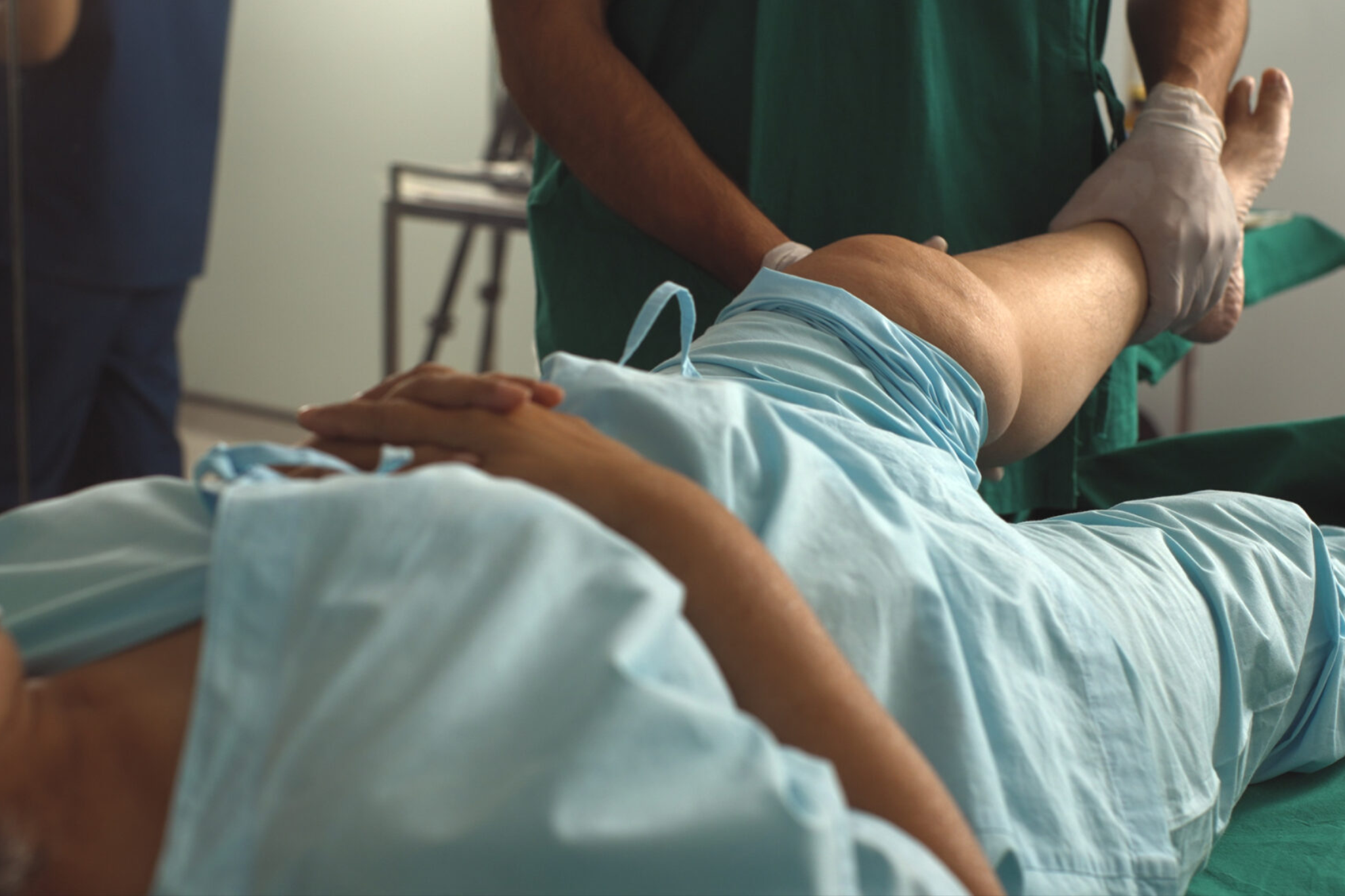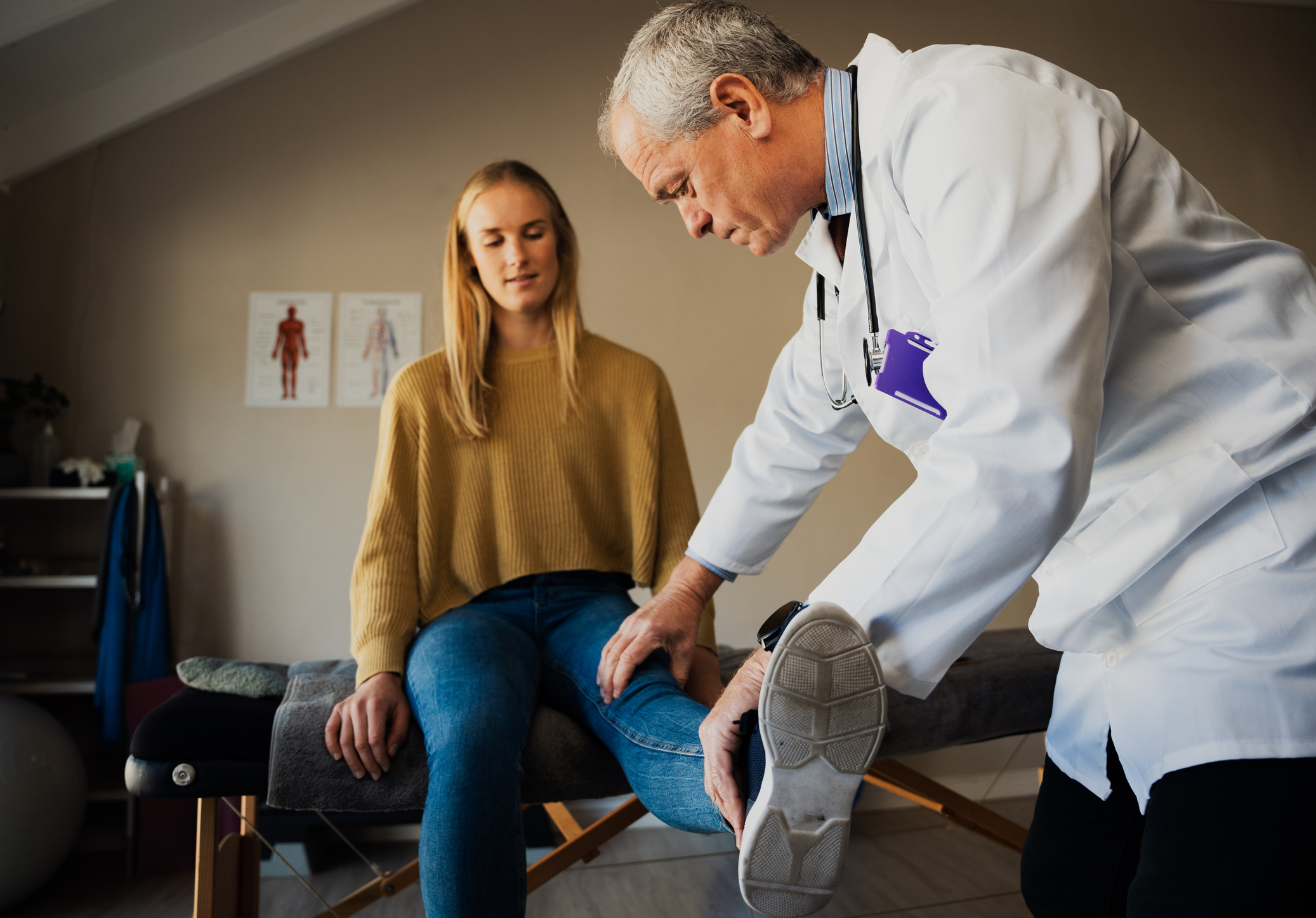
7 Ways to Prepare for Outpatient Joint Replacement Surgery
If you’re scheduled for an outpatient hip, knee, or shoulder replacement, the thought of returning home the same day can feel both exciting and a little daunting. You might be wondering: How do I know how to prepare for orthopedic surgery so that everything goes smoothly? The good news is that preparation plays a major role in a successful recovery, and the steps you take before surgery day can make all the difference in your comfort, confidence, and healing.
1. Get Your Pre-Surgery Health Checks in Order
Before your outpatient joint replacement, your care team will make sure you’re in top form for surgery. Think of it as your pre-game physical, a quick series of checks that set you up for a safe procedure and a strong recovery.
Here’s what to expect:
- A pre-operative physical exam with your primary care doctor. This visit confirms you’re healthy enough for surgery and helps fine-tune any conditions like high blood pressure or diabetes before your procedure.
- Lab work and imaging, such as blood tests, an EKG, or X-rays. These give your surgical team a clear look at your heart, blood health, and joint so they can plan your care precisely.
- Specialist clearances may be required if you have existing health conditions. Your surgeon may ask for input from your cardiologist, pulmonologist, or another specialist to ensure every part of your care is coordinated.
Completing these steps well ahead of surgery helps avoid last-minute surprises and gives your team the information they need to keep your experience smooth from start to finish.
2. Prepare Your Home for a Safe Recovery
Before surgery, take time to set up your home for comfort and safety. Create a recovery area with essentials like medications, water, snacks, ice packs, and a phone charger within easy reach so you can rest without frequent movement. Clear walkways by removing tripping hazards such as rugs, cords, and clutter, and rearrange furniture to allow space for a walker or cane if needed.
You may also want to consider adding supportive features to make daily activities easier. Grab bars in the bathroom, a sturdy handrail by the stairs, or a shower chair can provide extra stability and confidence. These simple adjustments will make your return home smoother and help you focus on healing safely and comfortably.
3. Arrange for Transportation and Support
While you can return home the same day, you’ll still need some extra help during the first 24 hours. Planning ahead for transportation and support can make your transition home much easier and safer. And because you’ll still be recovering from anesthesia, it’s important to have someone you trust ready to assist.
You’ll need a friend or family member to:
- Drive you to and from the surgical center. You won’t be able to drive after your procedure, and having someone available eliminates the stress of managing travel yourself.
- Stay with you for the first 24 hours to help with meals, mobility, and medications. Everyday activities can be tiring right after surgery, and extra help allows you to focus on rest and recovery.
If you live alone, consider asking a family member, friend, or home-care provider to stay with you or check in regularly. Having consistent support available makes it easier to manage your routine and begin healing safely and comfortably at home.
4. Follow Fasting and Medication Guidelines
What you eat, drink, and take before surgery plays a big role in keeping your procedure safe and smooth. Your surgical team will provide detailed fasting instructions, which usually mean no food or drink after midnight the night before surgery. Following these directions carefully helps prevent nausea and other complications during anesthesia so your body is ready for a safe, steady recovery.
With that said, it’s just as important to review your medications well before surgery day. Some prescriptions, over-the-counter medicines, or supplements, especially blood thinners, anti-inflammatories, or herbal products, can increase bleeding risk or interfere with anesthesia.
Your surgeon will let you know which medications to continue and which to pause, so be sure to bring a complete, up-to-date list to every appointment.
5. Start “Pre-Hab”: Gentle Movement Before Surgery
A little movement before surgery can make all the difference. Many orthopedic surgeons recommend “pre-hab,” or pre-operative physical therapy, to strengthen the muscles supporting your joint, improve flexibility, and boost stability before surgery. Even a few weeks of guided exercises can enhance mobility, speed recovery, and increase confidence using your new joint right away.
Your physical therapist will customize your program to match your needs and surgical plan, whether that means hip stretches, knee extensions, or shoulder rotations. Staying active and consistent during pre-hab helps your body enter surgery stronger and makes your recovery smoother and more successful.
6. Plan for Post-Surgery Comfort
Preparing a few essentials ahead of time can make your recovery smoother and less stressful. Gather items that promote safety, convenience, and comfort so you can focus on healing:
- Loose, comfortable clothing that’s easy to put on without bending or stretching
- Slip-on shoes with good traction to prevent slips or falls
- A shower chair or handheld showerhead for safe, easy bathing
- Ice packs or a cold therapy system to manage swelling and discomfort
Label your medication schedule clearly, set reminders if needed, and keep your surgeon’s office number in an easy-to-find place in case questions or concerns arise. A little planning before surgery helps ensure your recovery feels more relaxed, supported, and manageable.
7. Prepare Mentally and Emotionally
It’s normal to feel anxious before surgery. Learning about your procedure, discussing expectations with your care team, and setting realistic goals for recovery can help ease your mind. Remember, same-day joint replacement is meant for healthy, motivated patients who are ready to return to mobility faster; you’ve already taken a strong step by choosing this path.
Outpatient Joint Replacement: The Smarter Way to Heal
When you’ve done everything to prepare for orthopedic surgery, you deserve a recovery plan that’s just as thoughtful. At Palmetto Bone & Joint, our outpatient joint replacement program offers a faster, more comfortable path to healing without a hospital stay.
Performed at our advanced Chapin Surgery Center, these same-day hip and knee procedures use robotically assisted technology for unmatched precision, minimal downtime, and lower costs. From the first consultation to your return home that very day, our team ensures every step of your journey is safe, seamless, and focused on getting you moving again.
H3: Palmetto Bone & Joint Brings Outpatient Joint Replacement to Chapin, SC
Patients throughout Chapin, Newberry, and Irmo turn to Palmetto Bone & Joint for exceptional orthopedic care and advanced outpatient joint replacement surgery. If you’re ready to take the next step after learning how to prepare for orthopedic surgery, our team is here to help you move forward.
Request a consultation today to explore your options and begin your recovery with South Carolina’s trusted orthopedic specialists.



